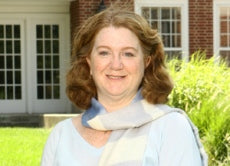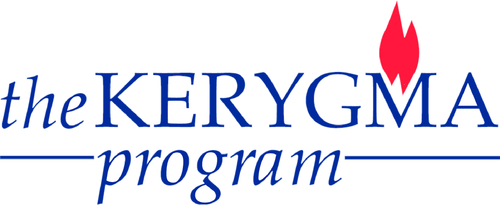Dr. Carol Bechtel—Never Tired of Teaching The Bible and Handel’s Messiah
Have you ever wondered how a young girl could grow up to become a professor of Old Testament? Here is how it happened for Kerygma author and Professor Carol Bechtel.

As a child, Dr. Bechtel was an avid reader, and always wanted to bring books with her to church. Her mother wouldn’t let her bring her Nancy Drew mysteries or other books, but would allow her daughter to read the Bible during church.
Dr. Bechtel recalls, “As soon as the sermon started I would get the pew Bible out and see if I could read all the way through the book of Ruth by the end of the sermon. Once I’d conquered Ruth, then I tried Jonah. Eventually, I could make it all the way through Esther.” And yes, she sees the connection between that experience and her eventual calling, because she discovered that there were some really good stories in the Old Testament.
She recalls playing Bible games with the other kids in Sunday school. “One of the teachers would call out, “Isaiah 53:6,” for example, and the first person who found the verse in their Bible would stand up and read it aloud.” “Those were fun, but they also motivated me to learn the books of the Bible and taught me how to find things in scripture. That’s important for all Christians, obviously, but it’s especially important for pastors. I’ve been teaching Introduction to Old Testament at Western Theological Seminary for twenty-five years. Each year, I make students learn the books of the Bible, in order and spelled correctly. They cannot earn a grade in my class until they have accomplished that 100%.”
Other strong influences for Dr. Bechtel were the “people I could talk to about my questions. My grandmother, Bernadine Bielema Green—to whom I dedicated my Brahms’ Requiem study—lived right down the road from me. She had been teaching Sunday school since she was in high school, and was really a fine biblical interpreter. She had books in her library that I would later read in seminary. To have Grandma there to talk to about these things was really an unusual blessing. She probably rolled her eyes at some of my questions, but she never let on.”
“I think she was the first person in her family—not just the first woman, but the first person in her immediate family—to go to high school. She was determined to learn. She was also a writer, and wrote a column for the local newspaper. So, I was influenced by that as well.”
As an undergraduate at Hope College, Dr. Bechtel did not intend to major in religion, until she took a Bible survey class. The professor, Dr. Dennis Voskuil, encouraged her to consider seminary, and even a PhD.
Taking that course was a pivotal moment, “because I realized that the serious study of the Bible was enriching my faith. It addressed questions that I was nervous about asking. For example, I wondered why there are repetitions in the Bible, and why there are discrepancies. If I had not taken that class when I did, I think my faith would have faltered. But in that class, I discovered that there are explanations for this. I learned that the process by which we received the Bible was more complicated than I had realized—and more miraculous.”
“That was a very freeing experience for me, and it’s still a huge part of my sense of call. It is very important for me to be a trustworthy teacher who can guide people through those times when they have questions that they are afraid to ask. God blessed me with a particularly good teacher in Dennis Voskuil, and I strive to be that for my students.”
On Handel’s Messiah and writing Hallelujah
Dr. Bechtel first encountered Handel’s Messiah as a member of her high school choir. In rehearsals, she admits that she would sometimes stare off into space thinking about the words when she was supposed to be singing.
“I first started teaching a class on the Bible and Handel’s Messiah for an adult Sunday school class at First Presbyterian Church in New Haven when I was a graduate student at Yale. I worked especially hard on it because you never knew who would show up in the adult Sunday school class in that place! Richard Hays, then teaching at Yale and now a New Testament professor at Duke, would often be there.”
“I realized then that I needed to find ways to talk about how the Old Testament texts in Messiah were about the Messiah. As an Old Testament student, I had been taught the importance of exploring the original context of the texts. I was—and still am—committed to that. But it was also clear to me that the Church hears these passages as being somehow ‘about’ Jesus Christ. Since I was working with Old Testament scholar Brevard Childs at the time, I began to listen for what he liked to call, ‘canonical echoes’ between the testaments.”
She would get the chance to wrestle with these issues when she was invited by Kerygma to write a study of the Biblical texts in Handel’s work.
“As I wrote the study, I came to realize that the question was not whether passages like Isaiah 7, 9, and 53 were about Jesus, but how are they about Jesus. While the original context was crucial, there was also a sense in which these passages had been ‘recontextualized’ as the early church attempted to understand their experience of Jesus Christ. So, in terms of context, I believe it’s not so much a question of either/or, but both/and.”
“I’m still not tired of teaching The Bible and Handel’s Messiah. That may have more to do with the quality of the music and the scripture passages than with anything else.”
Comments
Carole is a wonderful author and beautiful musician

